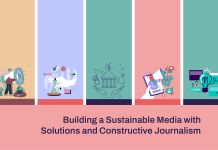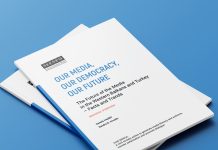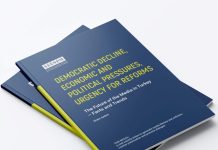Training for journalists and NGO sector have led to the creation of new networks, sustainable collaborations, and the strengthening of democratic culture in a small Montenegrin community.
The NGOs Ikre and Mrav, local organizations operating in Rožaje, a rural municipality in northern Montenegro, have joined forces in a mission to improve the quality of media content, increase the level of media literacy, and promote gender equality in their community.
The key activity of the project “Improving Media Literacy and Media Reporting on Gender Equality”, according to the organizers, was the training held for local journalists and representatives of the civil sector. These sessions aimed to enhance ethical and responsible journalism and to empower the civil sector for more effective communication with the media and more active participation in social processes.
“These activities were essential as they encouraged cooperation between the media and civil society, something that had not been systematically developed before. During the implementation of the project, representatives of several NGOs agreed to establish the Rožaje NGO Network, which will aim to foster cross-sector partnerships, joint initiatives, and the strengthening of the local civil society,” said Velida Hodžić, director of NGO Ikre and the project coordinator.
Hodžić considers the most tremendous success of the project to be the creation of lasting ties between local media, civil society organizations, and citizens, which represents a significant contribution to the development of democratic culture and participation at the regional level.
“This was the first thematic training for local journalists and civil sector representatives in Rožaje, where they met for the first time in a shared educational setting, to improve media literacy, ethical reporting, and public engagement,” Hodžić added.
Ikre is an organization with years of experience in implementing projects that improve citizens’ quality of life, empower marginalized groups, and promote human rights, primarily through work with youth, women, persons with disabilities, and minority communities. Their partner organization, NGO Mrav, made a significant contribution to the project’s implementation. Hodžić emphasized that the grant from the Media Institute of Montenegro enabled stronger cooperation with this organization and greater media visibility.
“In the end, through this project, we gained new knowledge, developed sustainable models of cooperation, and opened the door to future joint initiatives that will have a long-term impact on the development of the local community,” she said.
The success of the project “Improving Media Literacy and Media Reporting on Gender Equality” is also reflected in the positive numbers.
“Participant evaluations, the number of media articles published following the trainings, as well as the expressed willingness to continue with similar activities in the future, all indicate that the project has left a visible and lasting mark on the local community,” concluded Hodžić.
The project is funded through the Our Media sub-granting scheme, which has provided support to 21 local projects across the Western Balkans.

The regional program “Our Media: A civil society action to generate media literacy and activism, counter polarisation and promote dialogue” is implemented with the financial support of the European Union by partner organizations SEENPM, Albanian Media Institute, Mediacentar Sarajevo, Press Council of Kosovo, Montenegrin Media Institute, Macedonian Institute for Media, Novi Sad School of Journalism, Peace Institute and Bianet.
This article was produced with the financial support of the European Union. Its contents are the sole responsibility of Montenegro Media Institute and SEENPM and do not necessarily reflect the views of the European Union.








